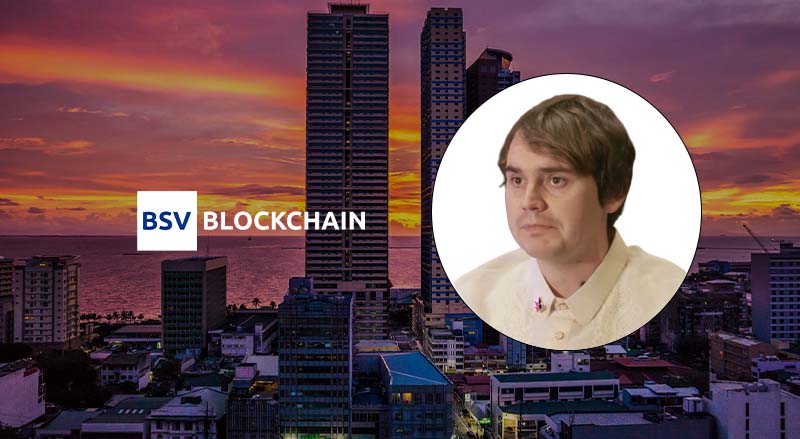The Philippines has everything it takes to become a global leader in blockchain, including a young population, a desire to upskill, and a government committed to promoting the technology. This is the view of Gareth Roberts, Product Manager at nChain, who spoke at the recent Philippines Blockchain Week.
Roberts is particularly bullish about Central Bank Digital Currencies (CBDCs) and how they could benefit the Philippines and other countries by allowing people to hold digital money without needing a bank account.
‘To have a CBDC – this capability to give people electronic money without needing to have bank accounts – you effectively need a distributed ledger technology that can be relied upon to keep track of the fact that everyone has asset values in cash to track all the spending to make sure no one cheated the system.’
‘I think one of the biggest opportunities is in helping the unbanked to access state-issued electronic money and blockchain provides the best infrastructure to do that.’
Government auditing and accountability via blockchain
Roberts noted that the Philippines government has also taken steps to make its processes more open in terms of data capture and allowing its citizens to engage more fairly.
‘I think the blockchain has a great audit use case whereby when things are recorded it’s recorded on the blockchain. One of the core capabilities of the blockchain is you can’t break that data, you can’t corrupt that data or secretly change it,’ he said.
Roberts added that this is not limited to government services and that most enterprises stand to benefit from the additional auditing capabilities and the ability to monitor any transaction and ensure it has not been tampered with.
Identity and security on blockchain
Roberts specifically highlighted identity documents and security as one sector that most stands to benefit from blockchain integration. ‘I think it’s going to be an essential use case for all governments going forward.
‘Say, for instance, you have an ID card that proves you are a certain person of a certain age. Right now, it’s quite a difficult process to validate if those documents are accurate or not.’
Roberts gave the example of requiring certificates from a university when applying for a job, and how this can be a time-consuming and arduous process.
‘I have found it is an extremely lengthy process where you give them the certificate and then they write to the University and the University validates it. Now with the identity use case, once a document is issued it lives on the blockchain.
‘What’s more interesting going beyond that is you can enhance the cryptographic capabilities where you can create systems where people are only able to query data that they are allowed to query.’
Blockchain adoption and hurdles
To make blockchain particularly powerful, it needs to be adopted at scale, Roberts said. This includes onboarding developers to build more tools for the platform and encouraging more people to use it, he said.
Roberts noted that the Philippines stands in good stead as its government has made a concerted effort to invest in technology, infrastructure and other blockchain initiatives. He said that this was ultimately necessary for the long term for most countries as they require a workforce which is trained and capable of using the technology rather than permanently relying on consultancy services.
‘So you would look to continue skilling graduates and young people here to be the workforce to implement this program. Once that program is implemented, you then basically have the Philippines as the go-to place for this skill set.’
‘There’s been a realisation that there are economic benefits to blockchain technologies. There is a young demographic and therefore I think there is an opportunity to make these changes and be one of the leading change makers. I find that the most exciting part of it.’
